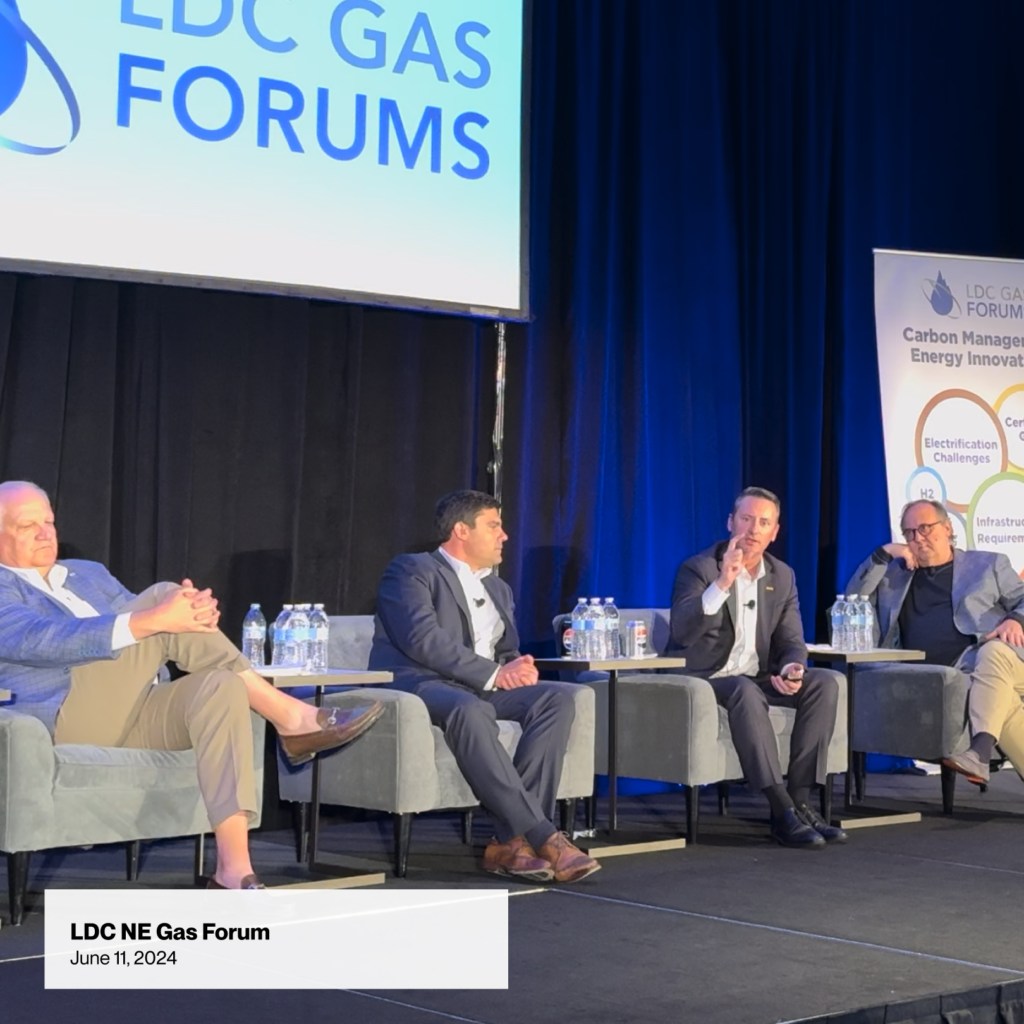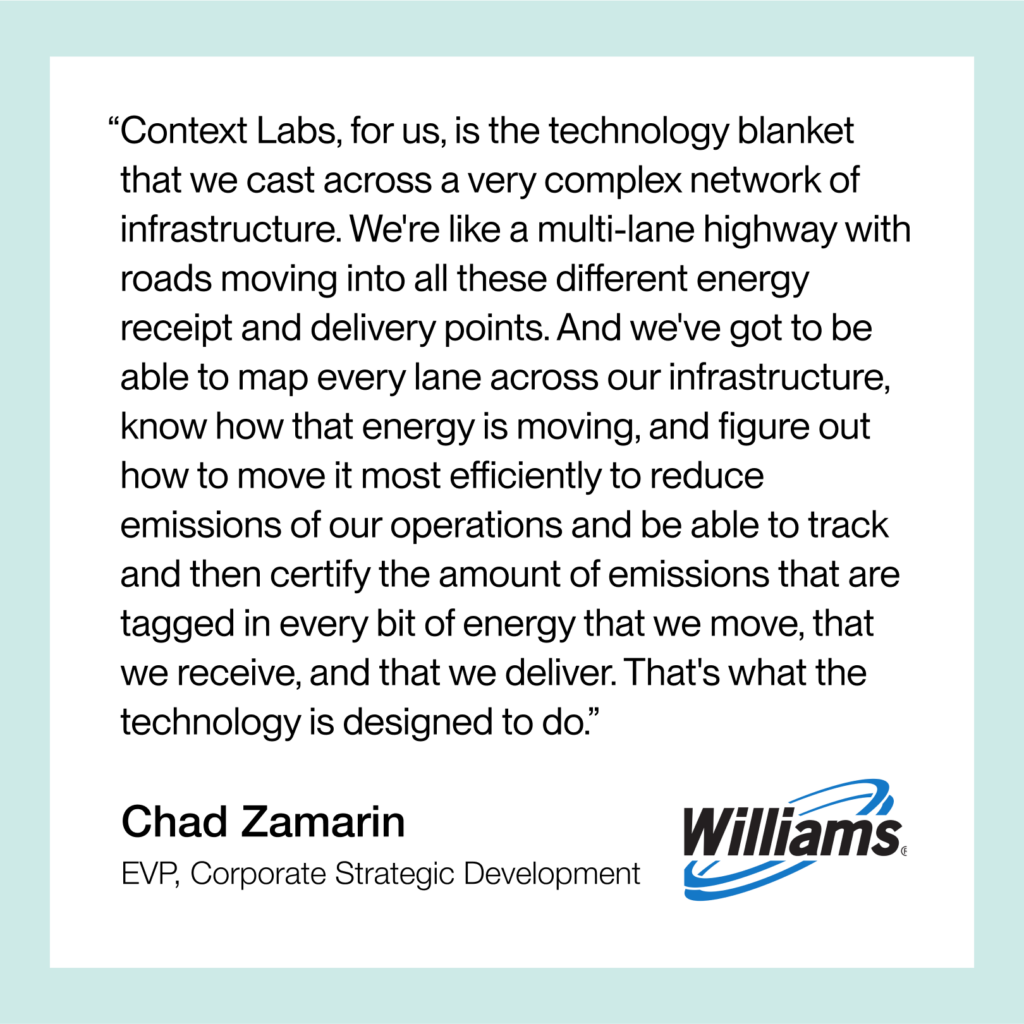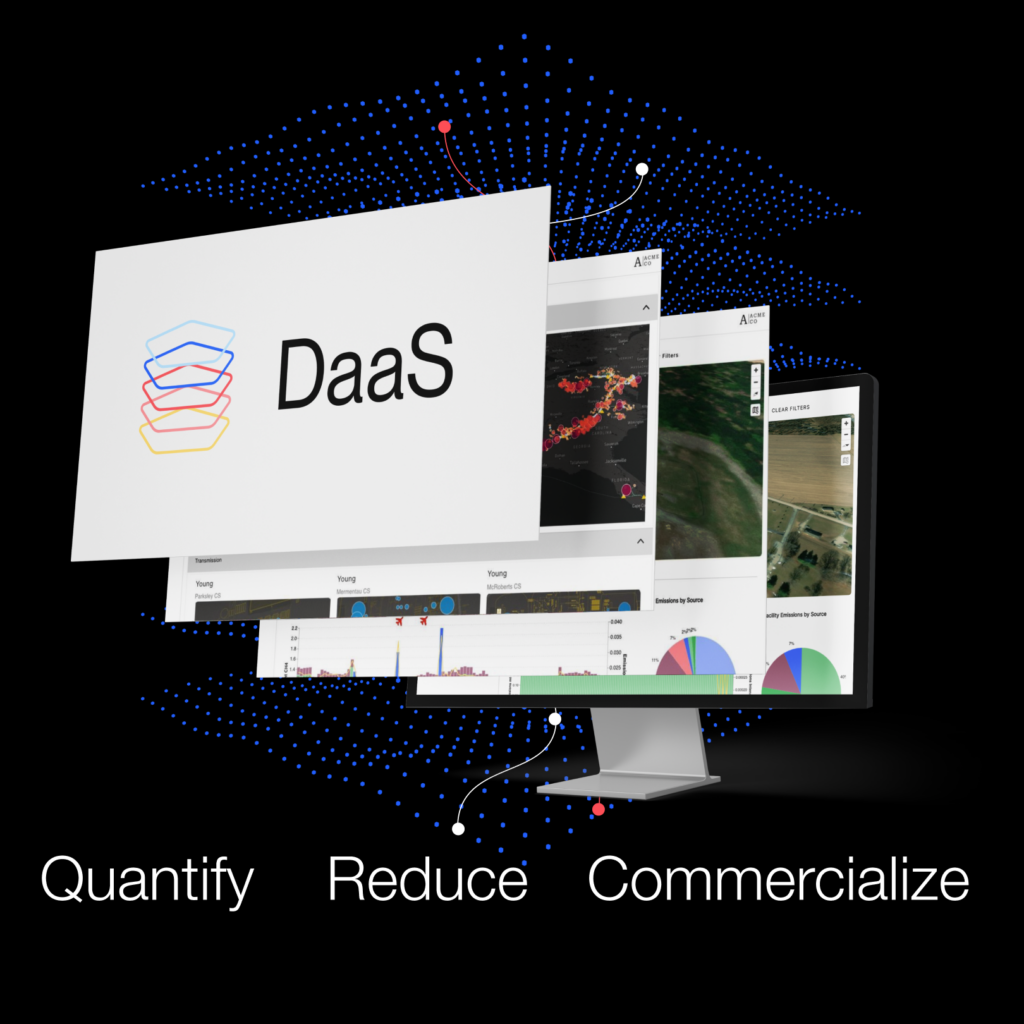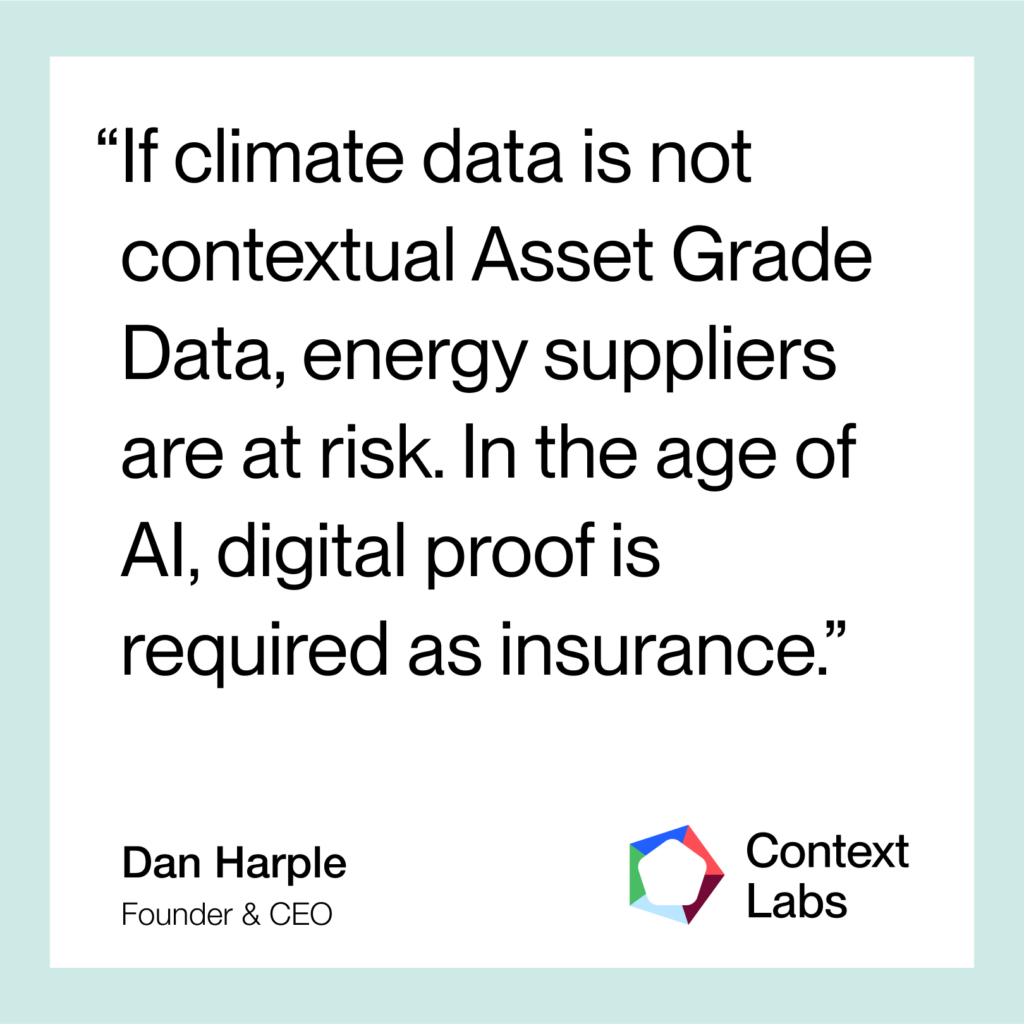We were thrilled to demonstrate our Decarbonization-as-a-Service (DaaS™) platform at the 29th annual LDC Gas Forum – Northeast, which took place here in Boston last week.
Context Labs participates in the forum to demonstrate the ways that the DaaS platform is enabling our energy customers to quantify and reduce emissions, then prove climate performance at scale.


Our panel on gas emissions reduction, “Differentiated Gas: An innovation offering a lower-carbon alternative to the energy mix,” was one of the highlights of the event. During the panel, Context Labs CEO Dan Harple; Jim Kerr, CEO of Southern Company Gas; Chad Zamarin, Executive Vice President of Corporate Strategic Development for Williams, and Toby Rice, CEO of EQT, shared the tools and strategies they’ve used to scale emissions reductions across the energy value chain.
Kerr discussed how his company is scaling its decarbonization program and delivering premium-priced differentiated gas to the market. Rice of EQT, and Zamarin of Williams, both Context Labs’ customers, explained how they are using Context Labs’ Decarbonization-as-a-Service (DaaS™) platform to deliver natural gas with a verified carbon intensity to customers like Kerr, by providing end-to-end emissions proof of performance, while also using DaaS to meet their respective Net Zero goals.
DaaS, a secure, scalable, end-to-end solution for managing carbon performance, is helping EQT and Williams discover and implement effective actions to reduce methane and carbon intensity by leveraging granular emissions data at the source level. By enabling more carbon efficient carbon operations the companies are able to commercialize decarbonization through the development of NextGen Gas.
Harple concluded the panel with a demo of DaaS, showing how the AI-enabled solution transforms operational and third-party data into trusted, contextual Asset Grade Data climate analytics that accelerate and prove performance beyond compliance.


The benefits of third-party verification to the value chain include credibility, as independent verification adds credibility to the emission reduction claims of natural gas producers, enhancing trust among stakeholders, including consumers, investors, and regulatory bodies. Additionally, verification provides transparency into the emissions quantification process, allowing stakeholders to understand how emissions are quantified, reported, and managed throughout the supply chain. Moreover, third-party verification helps mitigate the risk of inaccuracies or discrepancies in emissions reporting.
We’re proud to be part of the conversation shaping the future of decarbonization. Thank you to all who attended and contributed to making this event a success. Let’s continue driving innovation and collaboration to accelerate the energy transition.